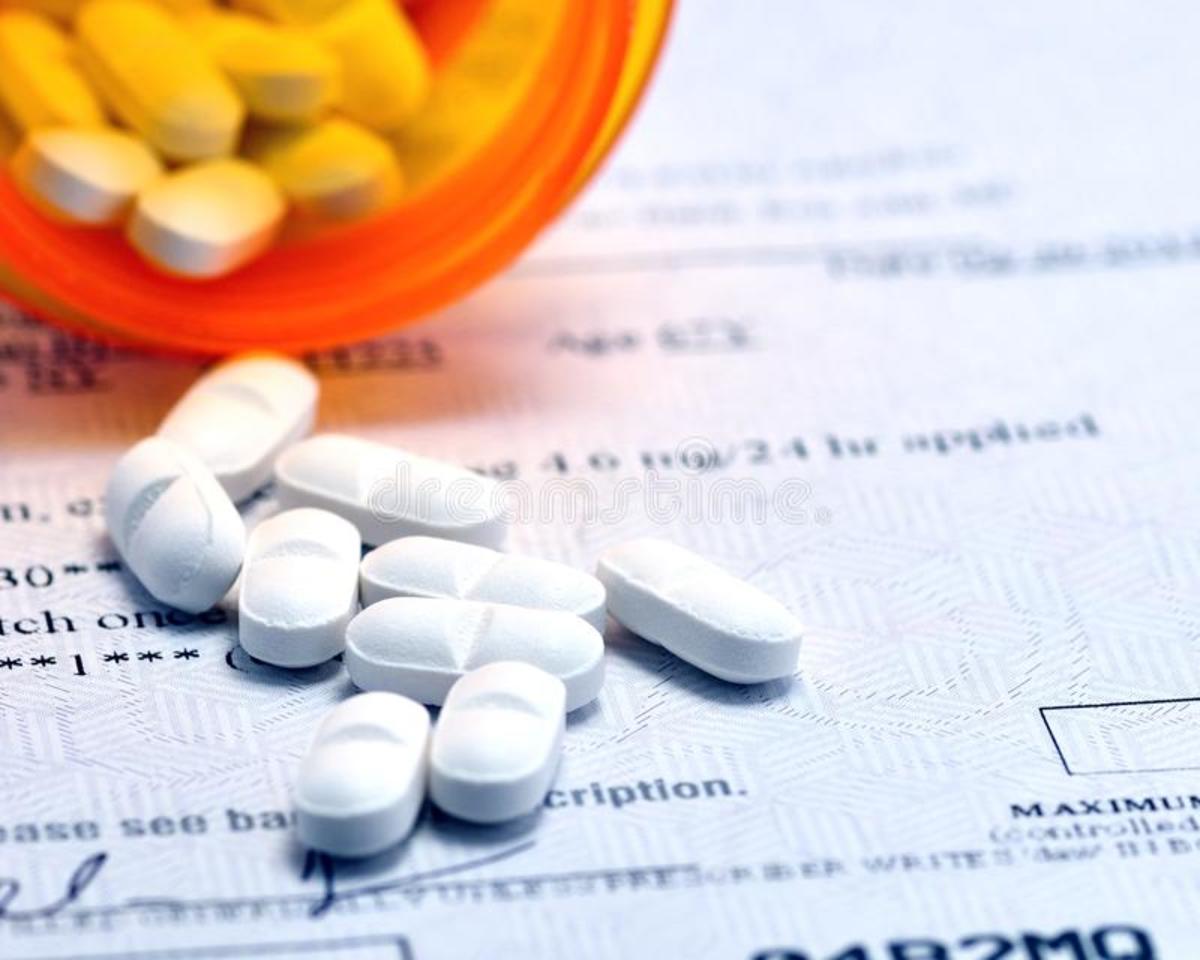Dangers of Ritalin
Psychopharmacology: Dangers of Ritalin
Society’s preoccupation with instant gratification has infiltrated many aspects of our lives. We have instant coffee, fast food, credit cards, and of course medications that produce the desired results instantly. It should not surprise the public that the pharmaceutical industry has managed to create a drug that would instantly control children. Ritalin has become the mainstream wonder drug that can take the terror of a toddler from 100 to 0 miles an hour in nothing flat. While the idea of mellowing a child with Attention Deficit Disorder is a noble idea, the reality of Ritalin and the misuse of the drug have led to controversy in the field of psychology.
Ritalin Uses
Ritalin is commonly prescribed for adult Narcolepsy and Attention Deficit Disorder in adults and children (ADD). The neurological disorder Narcolepsy causes episodes where a person falls sleep without warning. The random occurrence of a person with Narcolepsy falling asleep is the reason, the disorder to be debilitating to those who have Narcolepsy. People with Narcolepsy may experience temporary paralysis, hallucinations, or cataplexy (the loss of muscle control) (National Institute of Neurological Disorders and Stroke, March 4, 2009). According to Liu and Gao (2007), Adenosine is a sleep promoter that regulates sleep in the basal forebrain. It is the lack of proper function regarding the hypocretin/orexin system that is suspected of causing narcolepsy (Liu and Gao, 2007). Chemical balance within the brain is delicate. The overproduction of one chemical or underproduction of another chemical can cause the brain to malfunction. In the case of Narcolepsy the brain is deficient in one area and overproducing in another causing the person to fall asleep.
In the United States an estimated 5% of all school age children are diagnosed with ADD or ADHD (National Institute of Neurological Disorders and Stroke, 2009). The symptoms of Attention Deficit Disorder according to the Mayo Clinic (2009) are; inability to concentrate, child does not finish tasks, is easily distracted and often has issues focusing on tasks and conversations. Unfortunately, the description of symptoms for ADD does not vary a whole lot from the issues most parent has with an average child from time to time. To date there has not been any scientific proof that children suspected of ADD/ADHD are anything more than children acting out against their parents or environment. Chemical imbalances in the brain have not been proven in children who are suspected of ADD/ADHD. Various psychological tests along with parent and teacher’s testimonies is enough to condemn a child to a life of Ritalin.
Ritalin Side Effects
Trusting parents have turned to medical doctors for help in determining the best way to handle problematic behavior in their children. Few parents think to question a doctor’s advice when the doctor prescribes Ritalin after a five or ten minute conference and very few parents read the side effects of Ritalin before doling the pills out to their children. The sad reality is that Ritalin causes lasting side effects that can damage a child’s body and even a child’s brain.
The short term side effects of Ritalin are sleeplessness, appetite supression, dizziness, and heart palpitations. In a study done at Department of Neurology, Marshfield Clinic, 234 children diagnosed with ADD/ADHD showed that 206 of those children had significant side effects during the study. The study reveled that 95% of the children experiences the following side effects; insomnia, appetite disturbance, stomachache irritation, headaches and dizziness.
Even though Ritalin has been used since 1957 to treat children and adults, yet Ritalin still includes the warning statement; Long term effects of this medication have not been tested (Center for Substance Abuse Research, CESAR, 2009). In truth the effects of Ritalin have been tested on children and adults for the last decade on people. The new technology of Functional Magnetic Resonance Imaging (FMRI), has been used to monitor the effects of Ritalin on children. If Ritalin is given to a child who does not have ADD or ADHD, the result is a slow down in brain activity.
Looking at an FMRI scan it is obvious that not only is Ritalin stimulating the necessary part of the brain of the ADHD child, it is stimulating the entire brain unnecessarily. In the child who does not have ADHD the scan shows that Ritalin actually slows the brain activity. The increased activity in the frontal lobes of the child suspected of ADHD is three times as much as the child who does not have the disorder. The Frontal lobe controls aggressive behavior, looking at this chart it is obvious that the Ritalin is overacting the brain of the child.
Long Term Effects
In essence, Ritalin increases the chemical dopamine in the brain. Ritalin then blocks the transporters that move the dopamine, by obstructing the dopamine more dopamine goes back into the receptors (CESAR, 2009). Studies have shown that Ritalin slows growth in children and often creates deadly eating disorders such as anorexia. The addictive attributes of Ritalin can be detrimental to the patients who take the drug, causing withdrawals. Patients using Ritalin have been reported to have motor tics (nervous involuntary twitching) aggressive behavior, kidney damage, liver damage, hepatic coma and even cerebral arteritis (brain hemorrhage, stroke).
Conclusion
In reaching for the instant cure to ADD pharmaceutical companies have created a deadly drug that is unhealthy for use in children or adults. The complexities of the brain should not be shifted in narrow minded attempts to make people the same. Children who have legitimate claims to Attention Deficit Disorder should be treated with safe medications and taught how to live with the disorder. Children diagnosed or misdiagnosed through improper testing and poor parenting should not become victims of Ritalin’s neurological and cardiovascular damage. Proper control over the use of Ritalin to treat either Narcolepsy or ADD is paramount to keeping children and adults healthy both mentally and physically.
Reference
Center for Substance Abuse Research, Maryland University. (2009). Ritalin.Retrieved on June 8, 2009 from http://www.cesar.umd.edu/cesar/drugs/ritalin.asp
Department of Neurology. (June 1993). Placebo-Controlled Evaluation of Ritalin Side Effects.
Retrieved on June 5, 2009 from http://www.ncbi.nlm.nih.gov/pubmed/8502509
Liu ZW, Gao XB.(January 2007). Adenosine Inhibits Activity of Hypocretin/orexin Neurons by the A1 Receptor in the Lateral Hypothalamus: a Possible Sleep-Promoting Effect. U.S. National Library of Medicine. Retrieved on June 8, 2009 from http://www.ncbi.nlm.nih.gov/pubmed/17093123
and the National Institutes of Health My NCBI
Mayo Clinic. (2009). Attention-Deficit/Hyperactivity Disorder (ADHD) in Children. Retrieved
on June 5,2009 from http://www.mayoclinic.com/health/adhd/DS00275/DSECTION=symptoms
National Institute of Neurological Disorders and Stroke. (March 4, 2009). Narcolepsy Fact Sheet. Retrieved on June 7, 2009 from http://www.ninds.nih.gov/disorders/narcolepsy/detail_narcolepsy.htm
Penn State University. (2009). FMRI & ADD/ADHD. Retrieved on June 7, 2009 from http://www.sas.upenn.edu/~wwalsh/fMRI%20&%20ADD.html
© 2011 MD Jackson MSIOP








